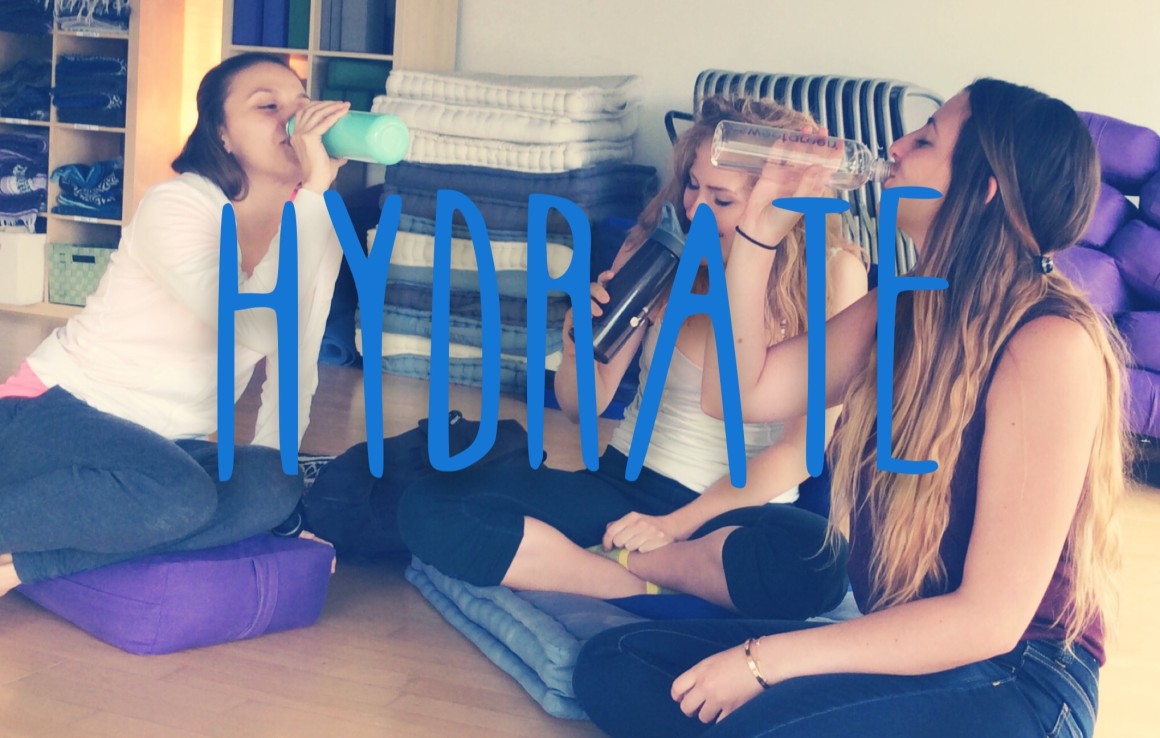“When we drink a glass of water, and if we know that we are drinking a glass of water, if we’re concentrated on the fact that we are drinking water, mindfulness is already there. And the water drinking becomes deeper, truer, and real.” – Thich Nhat Hanh Everyone knows that water consumption is essential to good health. Despite knowing this, not everyone consumes the amount of water that is recommended or required for their body to function healthily. Drinking water is extremely important to maintain an optimal balance of body fluids and body weight. It is also important to keep skin vitalized and healthy looking and to fuel and energize your muscles. Lastly, it is important to stay hydrated to maintain the functioning of your vital organs. Without water, we can become constipated, develop kidney stones or have other functional issues with our organs. While it is crucial to drink the appropriate amount of water to stay hydrated, equally important is to refrain from drinking over your recommended daily amount as this could result in serious consequences to your health. Many assume that it is okay to drink copious amounts of water, but research as proven otherwise. Consuming too much water could result in the over-dilution of blood So, what is the appropriate amount of water? In the past, everyone has followed the rule of thumb: eight glasses of water a day. However, recent research has shown that there is no scientific backing for this rule. For this week’s challenge, consider modifying your water intake to the correct amount. The recommended amount of water to drink is half of your body weight in ounces. For example, if you weigh 150 pounds, it is recommended that you drink 75 ounces of water every day. Following is the formula to determine your optimal water intake:
Weight (in pounds) x 0.5 = water intake (in ounces)
Before starting, you may consider purchasing a reusable water bottle. Having a water bottle allows for easy tracking of water consumption. Additionally, it is a more sustainable way to drink water. Plastic bottles have negative impacts on the environment and increase the amount of landfill and pollution each year. Moreover, a chemical present in plastic bottles, called bisphenol A (BPA), also poses health and environmental risks. The use of BPA water bottles has been linked to heart disease, cancer and other health risks. So, when purchasing your reusable water bottle, be sure to buy a BPA-free plastic bottle, ceramic or metal bottles. Start off the next 14 days by increasing your water intake by 1 glass every day, until you reach your recommended amount. Once you reach your recommended daily amount (RDA), continue to drink this amount daily. If you have been drinking to much water, consider cutting back by a few ounces a day, until you reach your RDA. If you are having trouble increasing your daily amount, start your day off with a tall glass of water. Doing so kickstarts your digestive system and brain. It also hydrates you, and helps cleanse the body of toxins. Additionally, if you are having trouble cutting back, try sipping your water instead of drinking it in large quantities. You can also test out Mindful Drinking to level out your water drinking habits. Mindful Drinking is the practice of being aware of what you are drinking, the sensation of it entering your body, noticing the glass between your hands and the feeling of the water in your mouth. To drink mindfully, have a glass of water for yourself. Take a few deep breaths before starting. Take the glass into your hands and just hold it for a few minutes. Feel the coldness and the wetness of the water. Feel it sitting in the glass. Then, bring it closer to your mouth. Hold it there for a few minutes. Smell the water. Rub the glass gently along your lips. Put your lips on the glass, bring the water to your mouth, but do not drink. Take in the experience. How does the water feel on your lips? What temperature is it? Next, take a small sip of water, and hold it in your mouth without swallowing. How does the water feel? Move it around in your mouth, along your tongue, through your teeth. When you’re ready, swallow the water. Track its movement down into your stomach. How does it feel? Notice the sensations.




